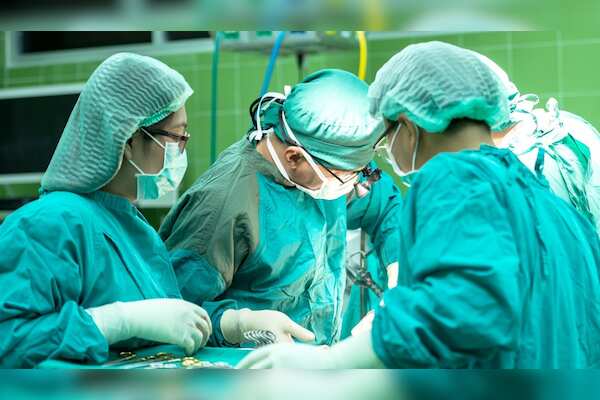A groundbreaking project with a budget of £1.1 million is underway to revolutionize drug production by utilizing food by-products to develop new antimicrobial drugs. Spearheaded by the University of Strathclyde in collaboration with the University of Surrey and GSK, this research aims to make the production of antimicrobials more cost-effective and sustainable, in response to the urgent global challenge of antimicrobial resistance.
The project focuses on harnessing the potential of bacteria, particularly Streptomyces, known for their ability to produce a variety of drugs, including antimicrobials. By utilizing food by-products, the team hopes to create a less carbon-intensive process for biomanufacturing, opening up possibilities for the development of a range of medications such as anti-parasitic, anti-cancer, anti-fungal, and immunosuppressant drugs. Professor Paul Hoskisson, the lead researcher at the Strathclyde Institute of Pharmacy and Biomedical Sciences, emphasizes the critical nature of this project. He highlights the challenge in industrial biotechnology of using sustainable industrial feedstocks for fermentation processes that promote greener manufacturing and cleaner growth without competing with the food chain. The project will leverage engineering biology approaches to guide bacteria towards utilizing food by-products for antimicrobial production, eliminating the need for costly, food-grade feedstocks. This strategy aims to ensure the continued production of high-value drugs while maximizing the use of food by-products in the process. Professor Claudio Avignone Rossa from the University of Surrey emphasizes the global threat posed by antimicrobial resistance and stresses the importance of innovative approaches to drug development and production. He notes that pathogens resistant to antibiotics can hinder the treatment of common infections and impact other life-saving treatments like chemotherapy. While antimicrobial drugs are available, their development and production costs are significant, prompting the need for creative solutions and leveraging knowledge of bacterial metabolism to address this challenge. In conclusion, this collaborative project between leading academic institutions and industry partners represents a significant step towards transforming drug production through sustainable practices and innovative solutions. By utilizing food by-products and applying cutting-edge techniques in biomanufacturing, the research aims to pave the way for the development of essential medications to combat antimicrobial resistance and improve global health outcomes. (With additional information from various sources)Revolutionizing Drug Production: Innovative Project Utilizes Food By-Products to Develop Antimicrobial Drugs
.png) 3 months ago
77112
3 months ago
77112
Related
Revolutionary Liver Transplant from Genetically Modified Pig...
1 month ago
19789
Massive Iceberg Breaks Off Brunt Ice Shelf in Antarctica: Th...
1 month ago
21857
Coping with Ecological Grief: Understanding, Support, and Se...
1 month ago
23073
Groundbreaking Technology Allows Machine to Read Thoughts in...
1 month ago
24947
Trending in United States of America
1. Chris Duarte
2. John Cena
3. Jon Landau
4. Lakers
5. Colombia
6. Djokovic
7. Ben Rice
10. NASCAR Chicago
Popular
Epic Games Prepares to Revolutionize Mobile Gaming with Plan...
4 months ago
136845
Discover What Your Mobile Cover Reveals About You
4 months ago
136776
Bloomberg: Nintendo Switch successor will be released in ear...
4 months ago
136708
Tower Semiconductor wants to build $8 billion chip factory i...
4 months ago
136689
Google Reinstates Indian Apps on Play Store After Government...
4 months ago
136648
Subscribe Newsletter
Fill out the form below to subscribe to our news
© Newstia 2024. All rights are reserved









 English (US)
English (US)